How to Control Japanese Beetles and Grubs
Japanese beetles are one of the most devastating pests in the yard and garden. Both grub (the larval form of Japanese beetles) and the adult stage of Japanese beetles are highly destructive.
Adults Japanese beetles are known for skeletonizing leaves of a wide variety of ornamental and edible plants. Then the Japanese beetle grubs primarily feed on grass roots often damaging lawns, pastures, golf courses, and other plants. Furthermore, grubs also attract harmful lawn pests such as moles. Moles feed on Japanese beetle grubs and they leave tunnels in the lawn while looking for their food source.
In this guide, we'll first cover the ways to keep adult japanese beetles out of your garden. Then we'll go over the ways to get rid of grubs. Continue reading to learn more.
Disclosure: This post contains affiliate links. We may receive commissions on purchases made from our chosen links with no extra cost to you. Learn more.
Method 1 of 2: Keeping Adult Japanese Beetles out of Your Garden
Use a Dropcloth
Lay a drop cloth on the ground surrounding affected plants and shake the plants vigorously to dislodge Japanese beetles. Then dump the collected beetles into a container of soapy water, which will cause them to drown. This method should be done early in the morning. Repeat the process on a daily basis until you no longer find the beetles when shaking the plant or tree.
Cover your plants with a floating row cover
One of the best ways you can fight Japanese beetles off is by covering your plants with a row cover. Row covers are known as garden fabric or floating row covers. Their uses go well beyond keeping Japanese beetles and other insect pests from damaging plants. They can be used to solve a multitude of gardening problems such as protecting plants against frost.
Floating row covers vary in weight. To keep plants protected from Japanese beetles, you’ll need a lightweight and breathable material. When installing row covers, make sure the plants are completely covered and the edges are pinned securely.
Apply low toxicity insecticides
Good pest management strategies use preventative, cultural, as well as non chemical methods. However, there are times when insecticides become a weapon of choice. In such cases, you should consider using the lowest risk products.
Less toxic insecticides products contain pyrethrin, spinosad, and azadirachtin. These primary ingredients are effective and safe to use on edible plants. Some of the best products containing these ingredients are PyGanic Gardening, General Hydroponics AzaMax, DEBUG spray, and BotaniGard 22WP.
Even though the above-mentioned insecticides are less toxic, don't forget to read the labels carefully and follow instructions. When applied properly, you can effectively protect your plants and enjoy a safe, bountiful harvest. Also you must use insecticides late in the evening to avoid direct impact on pollinating insects.
Apply a neem oil
Neem oil is one of the most widely used organic insecticides in the landscape and gardens. It comes from the seeds of neem tree known as Indian lilac. When adult Japanese beetles ingest it, they pass onto their eggs, which causes hatched larvae to die before they become adult.
Not only do neem oil get rid of Japanese beetles, but it also has been proven effective in controlling other pests such as whiteflies, aphids, spider mites, etc. Even though neem oil is not toxic to plants and vegetables, you should avoid applying it on new transplants, wilted or otherwise stressed plants because it could burn and destroy them.
Method 2 of 2: Getting Rid of Grubs
Apply Milky Spores
Milky spore is the best natural method to get rid of Japanese beetle larvae. The product is approved and registered with the Environment Protection Agency (EPA) which is primarily responsible for regulating pesticides in the US.
Milky spore only targets grubs. Once the grubs ingest the bacteria, they become infected and eventually die. This product doesn't only knock back the population of Japanese beetles, but it also helps to eliminate moles under the lawn since they feed on grubs.
Additionally, milky spores don't have an effect on humans, pets, beneficial insects, and plants. It is also safe to use around ponds, wells, and streams. You can even use it in vegetable gardens without worrying about contamination.
Introduce Beneficial Nematodes
Beneficial nematodes are small roundworms which are barely visible with the naked eye. These natural organisms are used to get rid of various soil pests including Japanese beetle larvae. Just like milky spores, beneficial nematodes are safe to use around pets, humans, and plants. Also they don't harm non-target organisms.
NOTE: There are many species of nematodes and each targets specific pests. Therefore it's important to get the right type which is specifically for treating identified pests. Heterorhabditis bacteriophora (Hb) nematodes are the ones which are effective against Japanese beetle grubs. You can get beneficial nematodes online or at your local garden supply store.
Chemical Control
As a last resort, you can opt for chemical control especially if you have severe infestation. Scotts GrubEx Season Long Grub Killer and BioAdvanced 24 Hour Grub Killer Plus the best grub killers on the market. These products kill grubs but don't harm the lawn. In spite of that, they're not all suitable for use in gardens. Therefore, you should only use natural methods in your vegetable gardens.
BioAdvanced 24 Hour Grub Killer Plus get rid of grubs whenever they are active and delivers overnight results. It kills grubs and other insect pests (such as cutworms, ants, ticks, etc) on contact. On the other hand, Scotts GrubEx Season Long Grub Killer kills and also prevents grubs for 4 months. The good part about this product is that it contains ingredients that are not harmful to wildlife and beneficial insects.
If you're choosing chemical methods, it is extremely important to apply them according to the manufacturer’s instructions. Also make sure to wear protective clothing whenever you handle insecticide in order to keep yourself safe (gloves, long sleeves, eyewear, mask).
Final Verdict
Even though it seems to be a daunting task to protect plants completely from nature, these aforementioned methods can absolutely limit the amount of Japanese beetles and other troublesome pests in your yard and garden.
When left alone, they can multiply as quickly and cause excessive destruction. In short, it is better to fight against Japanese beetles and grubs before they get out of hand than to throw in the towel. Try to use these solutions in conjunction with each in order to win the battle.
HAPPY GARDENING !!
RELATED

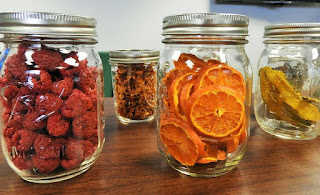
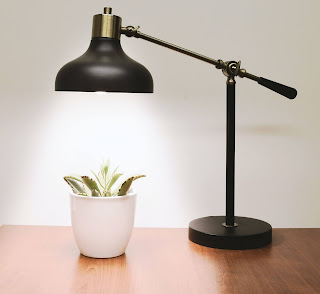

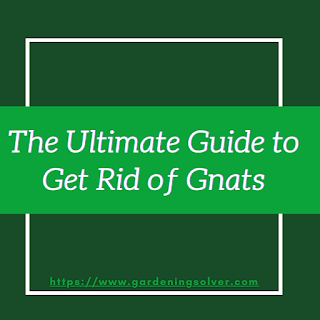
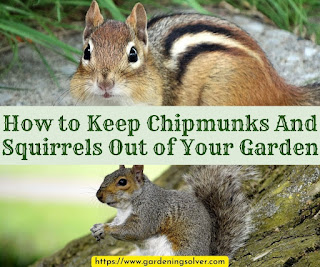
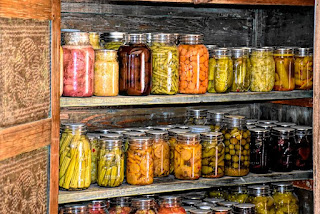
Comments
Post a Comment
Have something to say? Feel free to leave a comment.